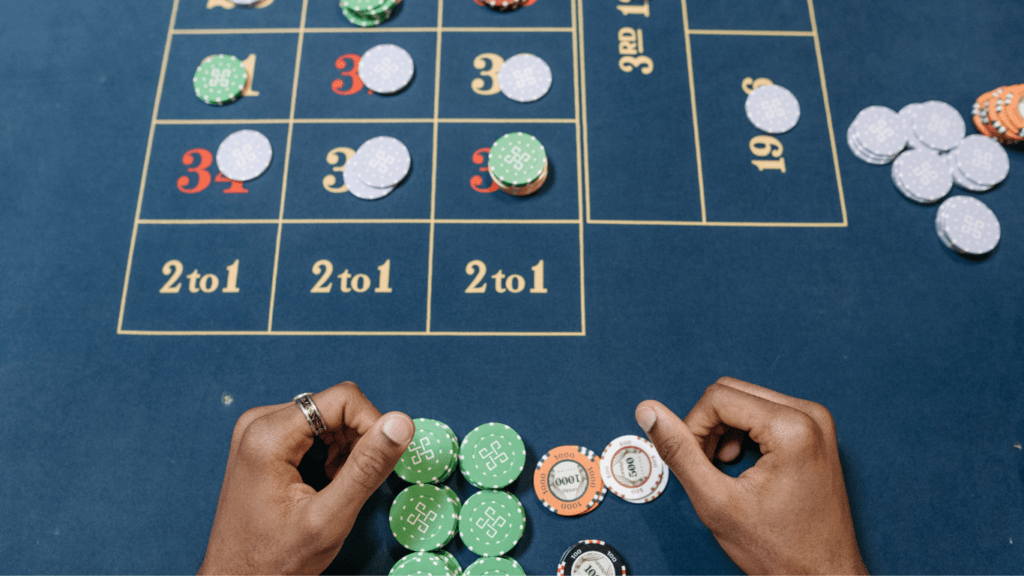Understanding Roulette Betting Systems
Roulette betting systems offer structured approaches to wagering, enhancing strategic play. Each system serves different goals and investment levels.
Overview of Popular Betting Systems
Roulette players often use Martingale, Fibonacci, and Labouchere systems. Martingale involves doubling bets after losses to recover them with one win. Fibonacci follows a sequence where each bet equals the sum of the two preceding ones. Labouchere asks players to cover losses by betting sums from a predefined sequence. Each caters to unique risk tolerances.
Pros and Cons of Using Betting Systems
Betting systems in roulette can provide direction and mitigate impulsive decisions. They help manage spending, fostering discipline. However, systems don’t change odds; the house edge remains constant. Prolonged losses can strain bankrolls, especially when larger bets are required. Balancing strategy and enjoyment is essential.
Importance of Bankroll Management

Managing your bankroll is crucial when using roulette betting systems. It helps in controlling losses and extending gameplay.
Setting a Bankroll Limit
- I always set a clear bankroll limit before starting any roulette session.
- This fixed amount dictates how much I’m willing to spend without impacting my financial stability.
- Sticking to this limit prevents impulsive spending.
- If I decide on a $200 cap, I stop playing when it’s depleted.
- This approach protects me from chasing losses and keeps the experience enjoyable.
Establishing Betting Units
Defining betting units is an essential step for me to manage my bets effectively. By dividing my bankroll into smaller increments, I ensure consistency and prevent rash decisions. If my bankroll is $200, using $5 units allows me 40 bets, helping me gauge how much I’m risking per spin. This method not only enhances discipline but also ensures I can play longer and strategically.
Strategies for Effective Bankroll Management
Effective bankroll management ensures a positive roulette experience. Implementing the right strategies helps maintain control over finances and prolong enjoyment.
Sticking to a Budget
- I always set a predefined budget before starting a roulette session.
- This budget serves as a boundary, preventing impulsive overspending.
- I might allocate $100 for a session and refrain from adding more funds, even when tempted.
- This practice enhances discipline and guards against emotional decisions that can lead to financial distress.
Tracking Your Progress
Monitoring progress is crucial to understanding betting patterns. I keep a record of wins and losses, which provides insight into my performance over time. Tracking data reveals which strategies work best and highlights necessary adjustments. By reviewing these records, I stay informed and make more calculated decisions in future gaming sessions.
Common Pitfalls to Avoid
Managing your bankroll during roulette requires awareness and discipline. Avoiding common pitfalls ensures a strategic and enjoyable gaming experience.
Chasing Losses
Chasing losses is one of the biggest dangers in roulette. It’s easy to feel tempted to recover lost money by increasing bet sizes, but this often leads to larger losses. I stick to predetermined limits and don’t let emotions dictate my bets. It’s important to remember that each spin is independent, and past losses don’t influence future outcomes. Keeping this perspective helps maintain focus and prevent emotionally driven decisions.
Ignoring Financial Limits
Financial limits play a crucial role in bankroll management. Ignoring them can lead to substantial financial strain and compromise your overall financial well-being. I find setting a strict budget before playing vital for maintaining control. By deciding on a fixed amount to wager, like $150 per session, I safeguard against dipping into funds earmarked for other expenses. Sticking to these limits requires discipline, but it’s essential for a sustainable approach to roulette betting.



 Senior Gambling Analyst
Ingrid Cox is the Senior Gambling Analyst at Dice Gamblers Deal, responsible for providing deep, data-driven insights into the strategies and odds behind various casino games. With a background in mathematics and statistical analysis, Ingrid brings a scientific approach to her role, offering players accurate and well-researched information on everything from blackjack hand probabilities to optimal roulette betting strategies. Ingrid's expertise allows her to break down the complex odds of gambling games, offering readers tools to better understand their chances and improve their strategies. Her work focuses not only on the numbers behind the games but also on trends within the gambling world, helping players stay ahead of the curve. Ingrid’s ability to translate difficult concepts into understandable strategies makes her a trusted authority for both beginners and seasoned gamblers looking to enhance their skills.
Senior Gambling Analyst
Ingrid Cox is the Senior Gambling Analyst at Dice Gamblers Deal, responsible for providing deep, data-driven insights into the strategies and odds behind various casino games. With a background in mathematics and statistical analysis, Ingrid brings a scientific approach to her role, offering players accurate and well-researched information on everything from blackjack hand probabilities to optimal roulette betting strategies. Ingrid's expertise allows her to break down the complex odds of gambling games, offering readers tools to better understand their chances and improve their strategies. Her work focuses not only on the numbers behind the games but also on trends within the gambling world, helping players stay ahead of the curve. Ingrid’s ability to translate difficult concepts into understandable strategies makes her a trusted authority for both beginners and seasoned gamblers looking to enhance their skills.
